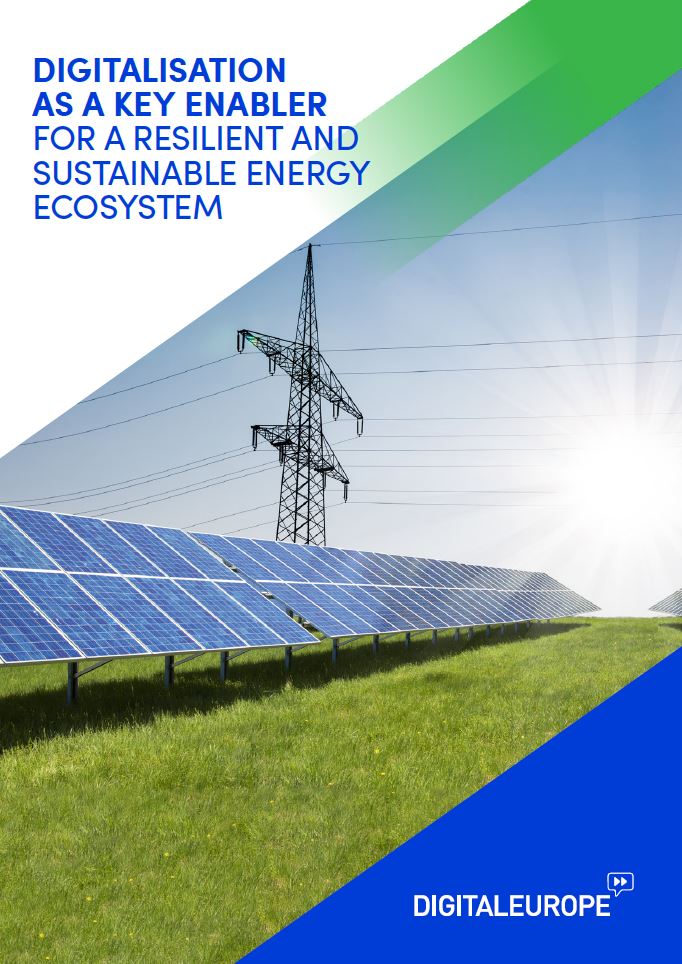Základní informace o publikaci
| Oblast vzdělávání a rozvoje: | Informační a komunikační technologie (IKT) dále nedefinované Životní prostředí dále nedefinované Elektrotechnika a energetika |
|---|---|
| Téma: | Internet věcí, Mikroelektronika, Software, 5G, Big Data, Robotika, Kybernetická bezpečnost |
| Cílová skupina: | Digitální dovednosti pro ICT odborníky |
| Úroveň digitálních dovedností: | Pokročilá, Odborník na digitální technologie |
| Druh iniciativy: | Mezinárodní iniciativa |
| Druh publikace: | Studie |
| Geografický rozsah: | Evropská unie |
O publikaci
Foreword
The EU should use the current energy crisis as an opportunity to increase collaboration between the digital and energy sectors. Digital technologies can help the EU transition away from a state of energy dependency – preventing Russia, for instance, from continuing its weaponisation of energy resources – and instead allow it to embrace energy sovereignty through accelerating the rollout of renewable energy, improving energy efficiency and saving costs for EU consumers and business.
As well as the energy crisis, digital is a ‘must-have’ in the fight to reduce emissions more broadly, and the EU has a collective responsibility to not only firmly acknowledge this fact, but to now actively work with digital to allow it to fulfil its enabling potential.
In this light, DIGITALEUROPE on the 27th October 2022 hosted a high-level roundtable on the digitalisation of the energy ecosystem. Executive level representatives from both the energy and digital sectors met to define the key accelerators and most important technologies that Europe can quickly adopt and scale up to drive forward the digital transformation of the energy ecosystem.
Of DIGITALEUROPE’s eight previously identified accelerators, four key accelerators[1] were identified that both the European Commission and Member States need to focus on to ensure that Europe is an environment where: member states can move as one in a harmonised way; data can flow; we have a fast and intelligent energy ecosystem that can actively adapt to demand; and where Europe is an environment which attracts and encourages investment.
Specifically, the four accelerators to achieve the above are:
DIGITAL ACCELERATORS
- Data cooperation (to enhance access to and use of sustainability data)
- Green Network Infrastructure (to speed up connectivity)
- Investment (to boost R&D and innovation in green tech)
- Enabling regulation (to create synergies between digital and green policies)
In addition, we challenged the participants to identify a small set of winning and fast accelerating digital technologies where Europe can lead, out of a long list of important ones. These are:
- Cloud, AI, machine learning
- IoT and edge control
The energy sector can be considered an early adopter of digital technologies[2] however it must now be enabled to be a continued and efficient adopter. These digital technologies can help a wide array of sectors of the economy, including energy, become significantly greener. By 2030, digital technologies have the potential to help resource-intensive industries in particular reduce their global Co2 emissions by 20%. In other words, these technologies can save 9.7x more emissions than they produce.[3]
Importantly, when combined, the abovementioned digital technologies can be applied to deliver significant results, outlined here below and delved into later in the report:
- Digital Twins
- Enhancing flexibility
- Enabling end-user systems and platforms
We have the what (a need to digitalise the energy ecosystem), the why (to foster resilience and achieve our climate goals), and today, this report outlines the how (investing in and using these accelerators and key winning technologies that will drive the transition forward).

References
[1] DIGITALEUROPE, Digital Action = Climate Action: 8 Ideas to Accelerate the Twin Transition, https://digital-europe-website-v1.s3.fr-par.scw.cloud/uploads/2021/10/DIGITALEUROPE_Digital-action-Climate-action.pdf
[2] International Energy Agency (2017), Digitalisation & Energy, https://iea.blob.core.windows.net/assets/b1e6600c-4e40-4d9c-809d-1d1724c763d5/DigitalizationandEnergy3.pdf, p.25
[3] GeSI (2015), #SMARTer2030 ICT Solutions for 21st Century Challenges, https://smarter2030.gesi.org/downloads/Full_report.pdf
